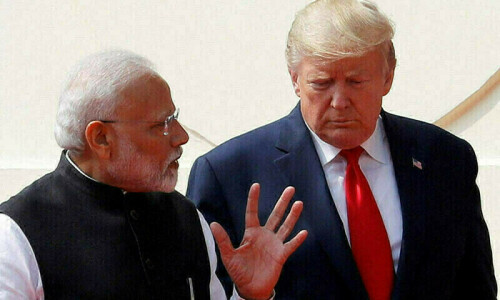Online space for dissent and freedom of expression in Pakistan has shrunk, while hate speech and digital surveillance has increased, a press statement by the Freedom Network group said on Wednesday.
In a press release, issued a day before the International Internet Day which falls on October 29, the rights research group noted a "regression" in cyber policies in Pakistan and said that online censorship and surveillance, breach of privacy, hate speech, misinformation and disinformation have increased in the country during 2020.
The group's annual report, titled Closing Spaces: Coercive Cyber Regulations Impede Online Journalism and Free Speech in Pakistan, found that the country faced "several setbacks" in 2020 in terms of digital rights, freedom of expression as well as the right to online information. The country scored a meagre 38 out of 100 in the global internet freedom rankings by the Freedom House, the press release stated.
According to Freedom Network's report, was an "increased reliance" on Prevention of Electronic Crimes Act to "encourage censorship". It also blamed the "aggressive federal government" for taking steps to "extend and expand its authority to overregulate the media sector and to redefine the boundaries of free speech".
There were efforts by the administration to muzzle media persons, members of opposition political parties, civil society members and civilians.
"The cybercrime law was repeatedly invoked against journalists and opinion makers for exercising freedom of expression and social media activism," the press release said.
It also noted that the government had approved controversial rules pertaining to online regulation even though the passage of an earlier version of the rules, the Citizens Protection (Against Online Harm) Rules, 2020, was halted after opposition from political parties, civil society members and journalists.
Another attack on online freedom was launched by the Pakistan Telecommunication Authority which, "using its unchecked powers [...] unleashed another controversy", and demanded the registration of Virtual Private Networks (VPNs).
"Internet freedom declined during 2020 due to authorities’ increased blocking of political, social, and cultural websites and undeclared policy of connectivity restrictions and increased disinformation," Freedom Network said in its press statement. "Several journalists and rights activists faced inquiries, abductions, investigations, arrests and criminal related to their online/social media activities and posts."
The authorities also started monitoring cyber activities of netizens by securing the services on the behalf of PTA of an international firm that "employs Deep Packet Inspection" through which communication on the internet, online traffic and call data can be collected.
Additionally, several female journalists reported feeling vulnerable and unsafe due to online bullying and threats by various sections including supporters and members of the ruling PTI.
Online disinformation and misinformation also increased in 2020 "as political polarisation grew encouraged by the ruling party and the prime minister himself", the press release said.
“It is troubling to note that the accumulative effect of the slide in enforcement of digital rights are contributing to a general closing of online spaces in Pakistan,” Freedom Network Executive Director Iqbal Khattak was quoted as saying by the statement.
















































